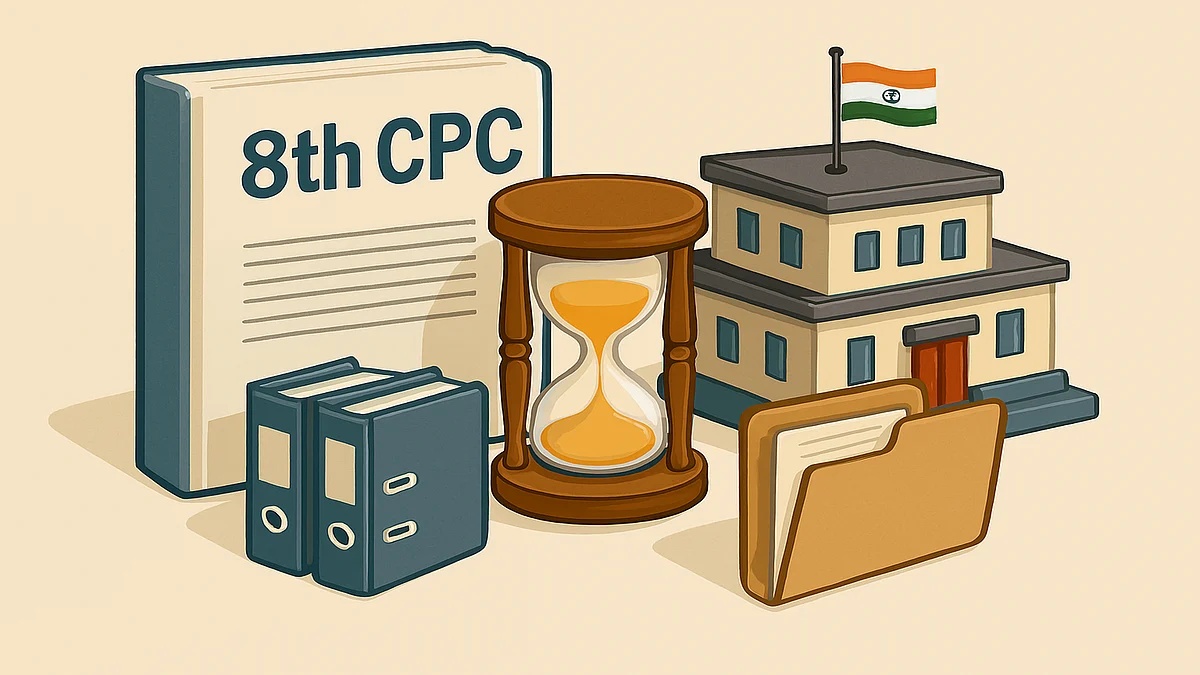
Government’s Stance on Fiscal Concerns
The Indian government has officially confirmed that the 8th Central Pay Commission (CPC) is in the process of being formed, despite delays in its constitution. Minister of State in the Finance Ministry, Pankaj Chaudhary, clarified that fiscal constraints are not the primary reason for the delay. This follows a parliamentary question raised by MP Javed Ali in the Rajya Sabha, which highlighted the seven-month gap in establishing the commission. Chaudhary emphasized that the government has already sought inputs from key ministries and states, including the Ministry of Defence, Home Affairs, and the Department of Personnel & Training, to finalize the commission’s terms of reference. The delay, however, has raised concerns among government employees who are awaiting salary revisions. The previous 7th CPC, which implemented significant salary hikes in 2016, saw the minimum salary for central government employees rise from Rs 7,500 to Rs 17,990. The 8th CPC’s recommendations, once approved, are expected to further adjust salaries and pensions, but the timeline remains uncertain.
Fitment Factor and Its Impact on Salaries
A critical aspect of the CPC’s recommendations is the fitment factor, a multiplier used to calculate revised salaries. The 7th CPC recommended a fitment factor of 2.57, which significantly increased the minimum salary for central government employees. For instance, applying this factor to the current Rs 18,000 minimum salary would result in a revised salary of Rs 46,260. The National Council-Joint Consultative Machinery (NCJCM), an official body facilitating communication between government officials and staff, has also advocated for maintaining a fitment factor of at least 2.57. Employees’ associations argue that a higher factor is necessary to address inflation and improve living standards. However, the government’s decision to seek inputs from states and ministries suggests a cautious approach to balancing fiscal responsibility with employee demands. The final recommendations, once approved, will determine the extent of salary revisions for millions of government workers.
Process of Constitution and Employee Anticipation
The constitution of the 8th CPC involves a multi-step process, starting with the collection of inputs from relevant stakeholders. Once the government receives all responses, an official notification will be issued, followed by the appointment of the commission’s chairperson and members. Chaudhary noted that the commission’s recommendations will be reviewed by the government before being finalized. The delay in forming the commission has sparked debates about the efficiency of the process, with some critics questioning the bureaucracy involved. However, the government maintains that the delay is not due to fiscal concerns but rather the need to gather comprehensive inputs for accurate recommendations. Employees, who have relied on the 7th CPC’s revisions to improve their financial stability, are now eagerly awaiting the 8th CPC’s outcomes. The potential impact on their salaries could be substantial, particularly given the rising cost of living and inflationary pressures.
Historical Context and Future Implications
The 7th CPC’s recommendations, implemented in 2016, marked a significant milestone in the history of salary revisions for government employees. The commission’s decision to increase the minimum salary to Rs 17,990 was a response to the growing demand for better compensation and living standards. However, the 8th CPC’s delayed constitution has raised questions about the government’s commitment to addressing employee concerns. The 6th CPC, which recommended a fitment factor of 1.86, had a less pronounced impact compared to its successor. As the 8th CPC moves closer to its constitution, the focus will shift to the specifics of its recommendations. Employees and unions are closely monitoring the process, hoping for a fair and equitable revision that aligns with current economic realities. The outcome of this commission could set a precedent for future salary adjustments and influence the broader discourse on public sector compensation.
Challenges and Path Forward
The formation of the 8th CPC is not without its challenges, as the government navigates the complexities of balancing fiscal responsibility with employee expectations. While the delay has been attributed to the need for comprehensive inputs, the prolonged timeline has tested the patience of millions of government workers. The fitment factor, a key component of the recommendations, remains a focal point for negotiations between the government and employee associations. The NCJCM’s advocacy for maintaining a high fitment factor underscores the importance of this metric in determining the final salary revisions. As the government proceeds with the constitution process, the emphasis will be on transparency and timely implementation of the commission’s recommendations. The 8th CPC’s outcome could have far-reaching implications, not only for current employees but also for the future of public sector compensation in India.




